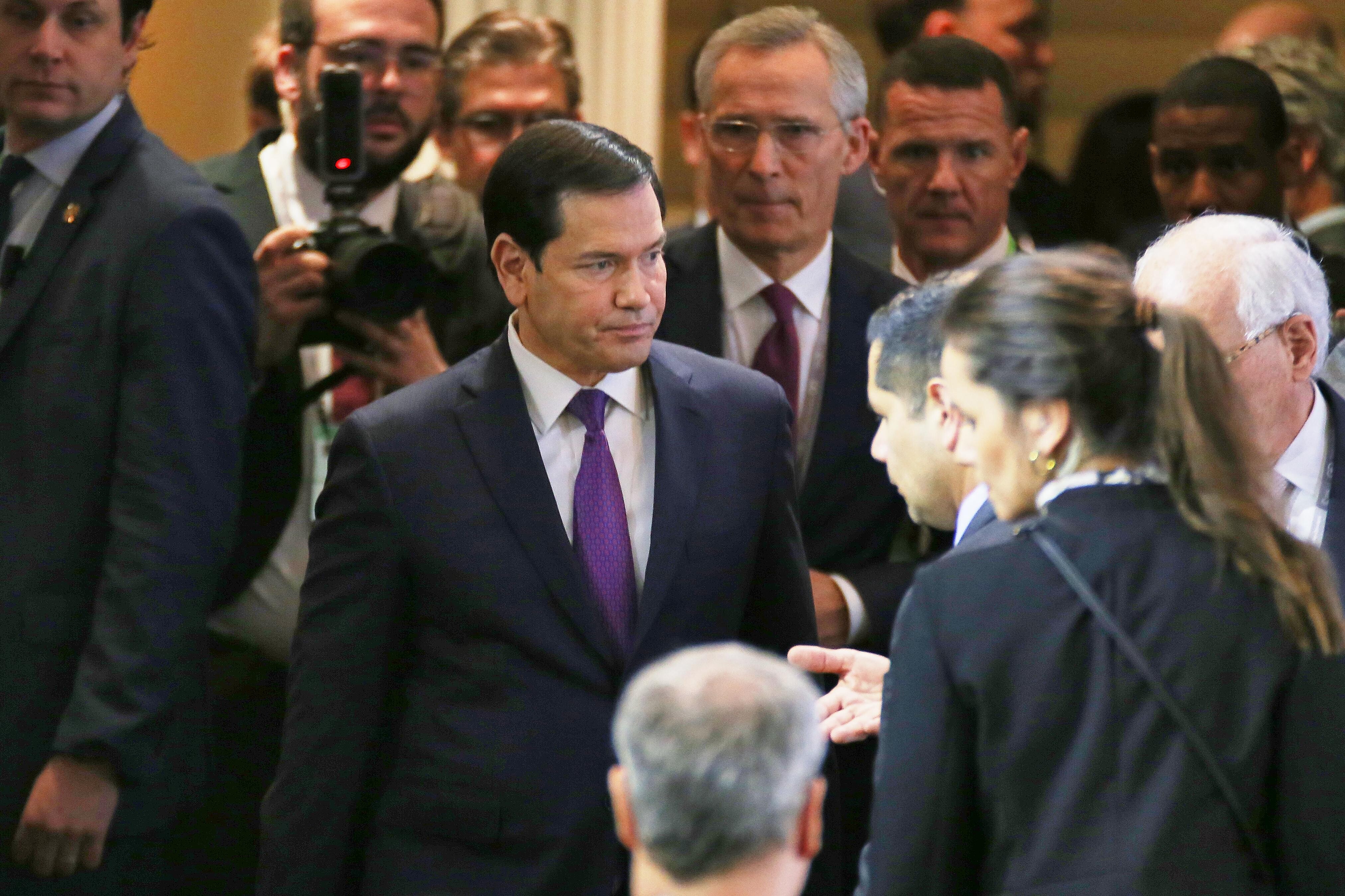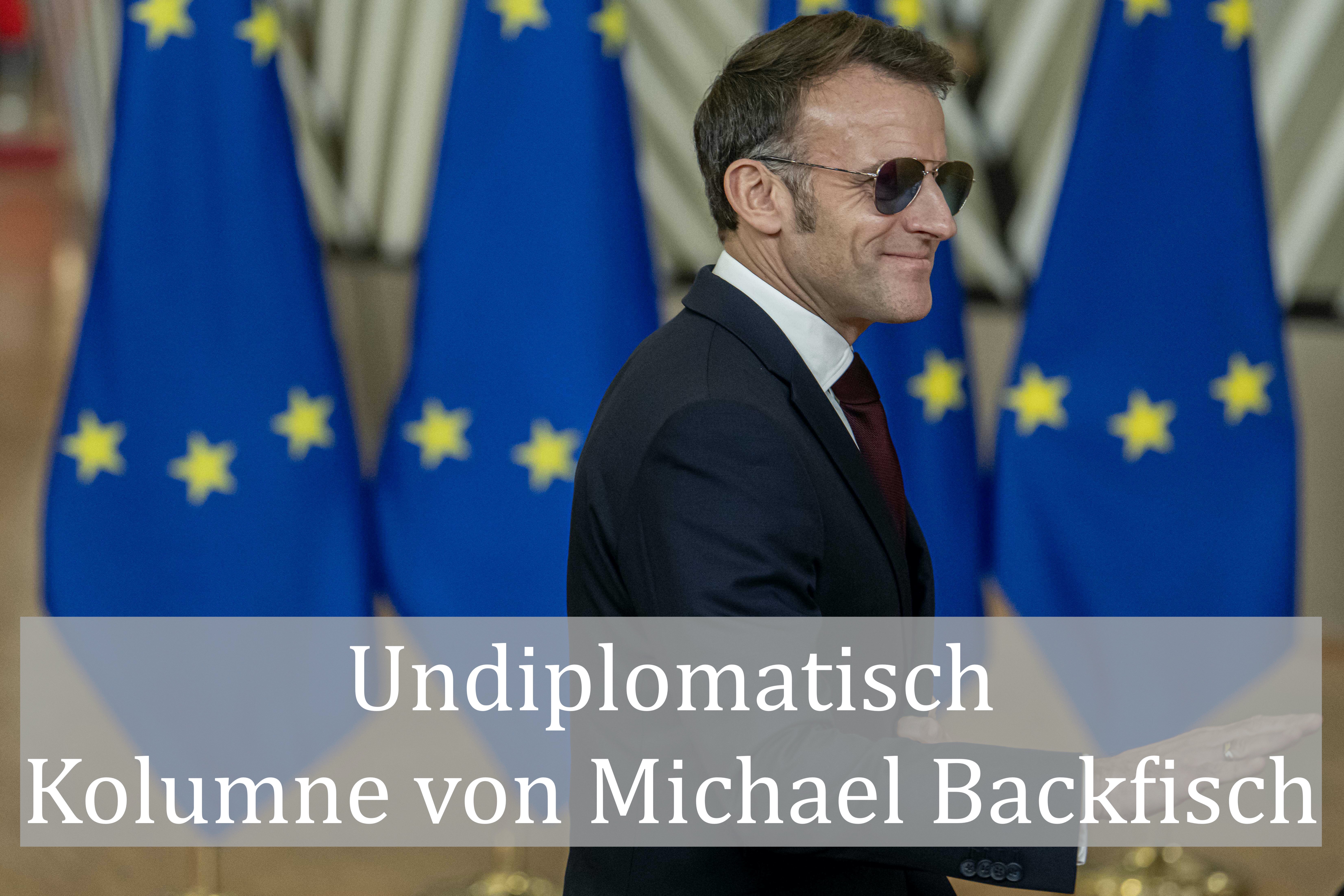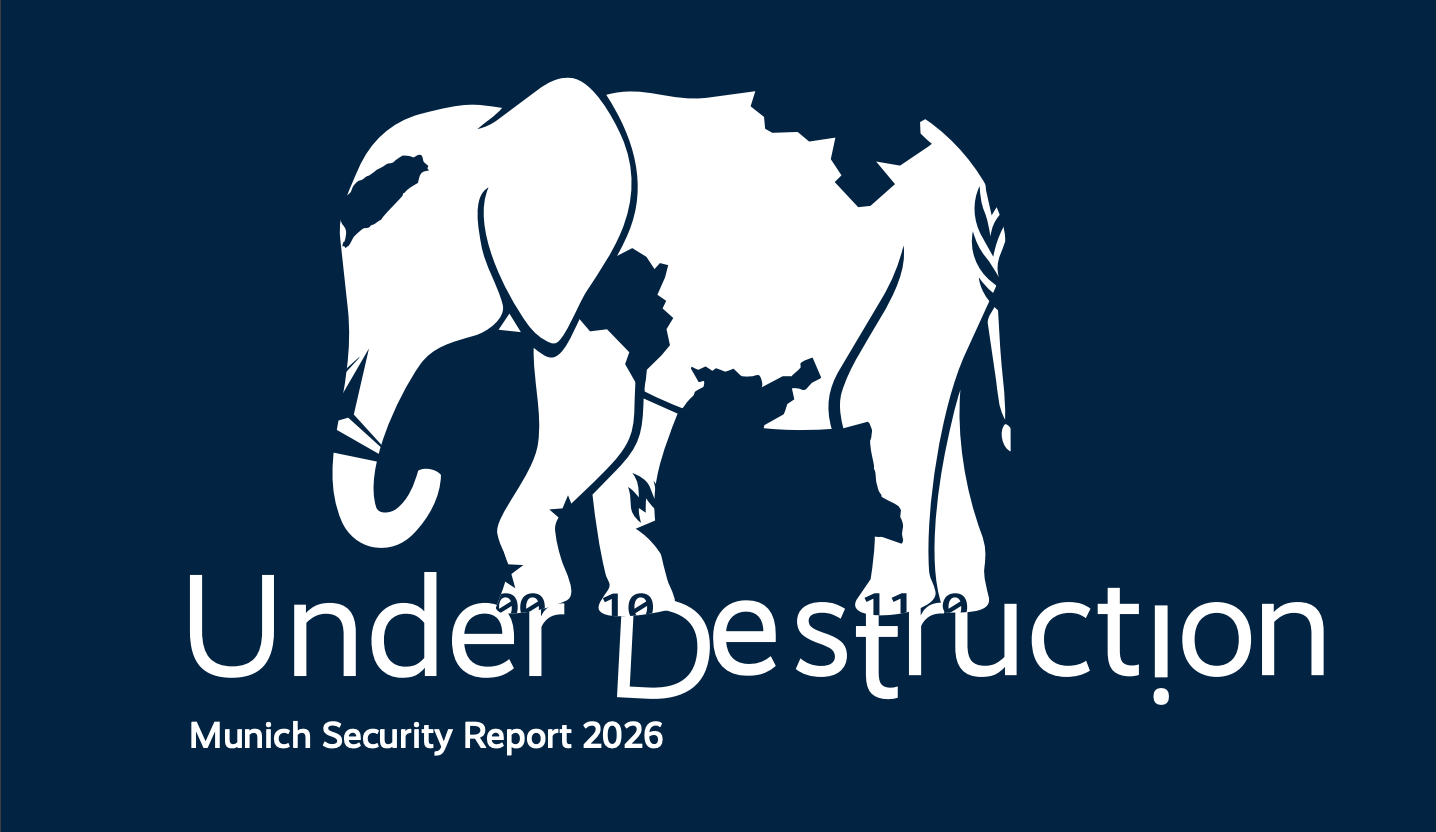diplo.news
“If I were Chancellor, I would investigate the situation myself”
Interview by Gudrun Dometeit
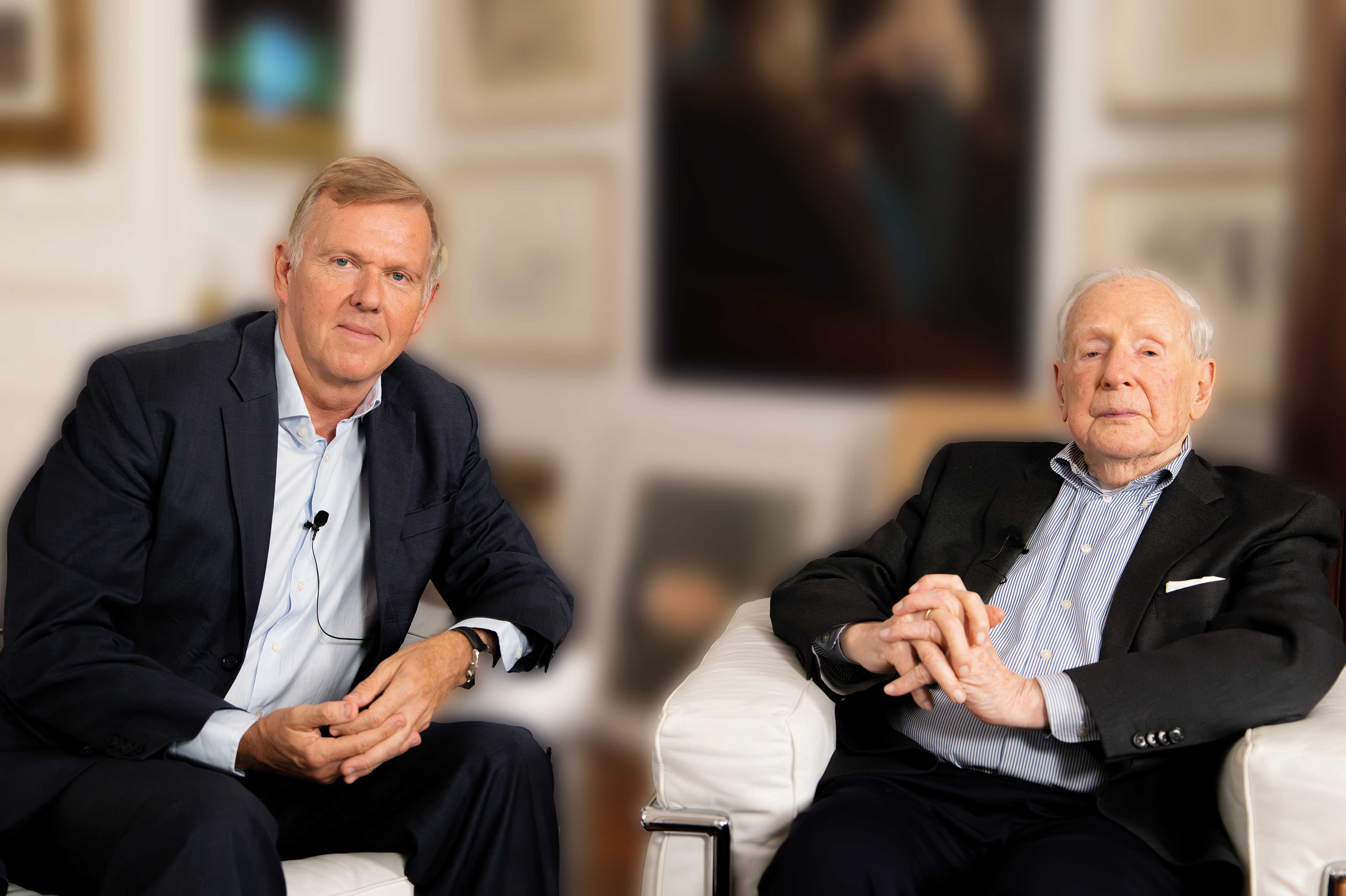
Both are opinionated, combative and not without controversy. They have now written a book together: Klaus von Dohnanyi, 97, who for decades helped shape the politics of the Federal Republic in various roles, including as Minister of State in the Foreign Office and First Mayor of Hamburg, and Erich Vad, 68, long-time group leader in the Federal Chancellery and military policy advisor to Chancellor Angela Merkel. In “War or Peace” — the book is written in the form of a moderated conversation — they plead for more dialogue with Russia. In an interview, Dohnanyi explains why he himself would go first to Washington and then to Moscow, how likely he believes that Russia would attack NATO and what mistakes the West is making in the Ukraine conflict. He himself experienced the horrors of the Second World War directly: As a 16-year-old, he was drafted into a combat battalion of the Reich Labor Service in January 1945, and the National Socialists executed his father Hans von Dohnanyi as a resistance fighter in the Sachsenhausen concentration camp in the last days of the war.
Recently, Russian drones allegedly entered Polish and Romanian airspace, Russian fighter jets remained in Estonian airspace for several minutes, and a Russian reconnaissance aircraft flew over a German frigate in the Baltic Sea. Such incidents are becoming more frequent. Is this a sign of Russia's increasing aggression?
According to West German and American military officials, the fighter jets' overflight was actually okay, because the corridor from Russia to the Kaliningrad exclave along Estonian airspace is narrow, and Russian jets cannot get there any other way. They have always done this. In the case of Poland, we do not know, at least officially, whether the drones were Russian or Ukrainian.
Do you think it could have been a false flag operation by Ukraine? They are directing suspicion towards someone else, namely Russia?
I think that's possible. It undeniably blew up the Nord Stream 1 and 2 gas pipelines (in September 2022, ed.). Those involved can be identified. Ukraine is not always sincere. (Answer updated)
But what makes you think that?
Because, for example, they tell us that Vladimir Putin wants to attack us. There is no evidence for this. Donald Trump recently gave a very clever answer to this. When Volodymyr Zelensky told him, “Mr President, we are also defending the United States in Ukraine,” he simply replied, “The Atlantic defends us.” So, I'm not sure who sent the drones where. I believe that a Ukraine that is prepared to blow up our infrastructure is also capable of sending drones over Poland.
With what aim?
To make us feel even more unsettled. Furthermore, in my opinion, Russia has no interest in being drawn into a conflict with NATO. The country can't even get through with Ukraine, and it knows how strong NATO is.
Nevertheless, some of the reactions to the incidents have been very violent. In EU circles, there is talk of shooting down Russian fighter jets or drones. Other proposals include declaring a state of emergency, which would immediately trigger conscription, or paralysing the Moscow metro. How dangerous are such reactions?
My co-author Erich Vad thinks they're dangerous. I believe that there is still an understanding on both sides that a military conflict is risky and not desirable. On the other hand, the Americans could wage a war in Europe without a single window pane being broken in New York. It has long been my thesis that we Europeans are in the hands of a power that supposedly protects us, but which has itself declared that our (the US) nuclear umbrella does not apply to you. Henry Kissinger once said that you wouldn't risk the life of a woman in Kansas because of a woman's life in Hamburg. Joe Biden emphasized in 2022 that the USA would only defend itself with nuclear weapons if they were attacked with them themselves. This rules out a preventive first strike. I don't think either side wants that, because they know they would then be destroyed themselves.
Does this mean that there is a need for a separate European atomic umbrella, which is discussed again and again? France is offering to share its arsenal.
The French aren't going to risk Paris over Warsaw, are they? When used, the atomic bomb is also a suicide weapon. During a NATO exercise during Helmut Schmidt, I saw that the only people who used nuclear weapons back then were the Americans. They polluted German soil to stop the Russians and prevent them from moving through.
Isn't it enough to maintain uncertainty about a possible deployment? After all, there are also US nuclear missiles in Germany.
Yes, but they are only there to protect the USA in order to shorten the flight time to Russia. Russian missiles must travel a significantly longer flight distance to reach the USA.
Federal Defense Minister Boris Pistorius, who is a member of your party, the SPD, but also the military and the Federal Intelligence Service (BND) repeatedly warn of a Russian attack on a NATO country by 2029 at the latest. Other experts have already predicted that this year will be the last peaceful summer. How realistic is that?
You can push for armament by creating fear. Based on all the information I have, I consider this to be a mistake and a misjudgement. Putin has no interest in a war with NATO. He attacked Ukraine when it was about to become a member of NATO. That was the bright red line for Russia, as the former US ambassador to Moscow, William Burns, wrote in 2019.
In your opinion, it is not about a fight against the Western value system, but Putin is still solely concerned with Ukraine?
Yes and no: for example, he is concerned about whether Sevastopol could become an American NATO port after Ukraine's separation from Russia's sphere of influence. Because Crimea would then be part of NATO. That was and is unacceptable to a Russian president.
However, in 2010, Ukraine and Russia signed a contract for the use of Sevastopol for the Russian Black Sea Fleet until 2042. So the fear was actually unfounded.
Historically, this is a short period of time for a political strategy. Putin would still have had to constantly justify at home why Crimea would be part of NATO and that US warships could appear there at some point. My co-author writes in the book that he would have done the same as the Russian Chief of Staff.
However, the situation could escalate at any time. Russia is currently heavily bombing Kiev and the surrounding area; Ukraine is carrying the war far into Russian territory, against important infrastructure. Could Russia, as some believe, be testing NATO in the Estonian city of Narva to see how far it is prepared to go to defend its members? Moscow could claim that it is protecting the Russian-speaking population there.
That is not a realistic scenario. Everything suggests that developments were triggered by the 2008 NATO summit, when attempts were made to bring Ukraine into NATO. But it probably began when the Western alliance admitted the Eastern European states in 1997. Bill Clinton was determined to do so at the time, even though many prominent US security strategists had warned of a historic mistake. He said he needed it to win his election. This reversed the policy of Roosevelt, who declared in 1945 that by ceding Eastern Europe to the Soviet Union, he had created the most secure Europe that had ever existed. Instead, the fall of the Berlin Wall in 1989 transformed Russia's wall against the West into a wall of the West against Russia. In other words, Russia's security interests were ignored.
But what is Russia so upset about? NATO is, at least according to its own statements, a defensive alliance that threatens no one. There is also a treaty with Moscow limiting NATO troops in Eastern Europe.
Russia has been invaded by the West at least three times, by Sweden, by Napoleon and by Hitler. It wasn't the other way around.
US President Donald Trump believed that the war in Ukraine could be resolved easily because he has a good relationship with Putin. Clearly not good enough. What chances do you still give his peace efforts? Do you believe he can end the war?
No. Because the interests of the parties involved are currently absolutely irreconcilable. Putin wants a neutral Ukraine that does not have weapons with which it can attack Russia, preferably a defenseless Ukraine. And the West is demanding exactly the opposite. Europeans in particular want a strong Ukraine, which is already by far the most experienced military power on the continent. It would bring hostility towards our largest neighbour into the EU. Then we will never be able to establish a reasonable relationship with Russia again. Yet Russia is not only our largest neighbour, but perhaps also our most dangerous neighbour. And especially when someone is dangerous, you have to try to establish stable relationships with them. Trump was right when he wanted to negotiate Ukraine's NATO membership with Putin in December 2021. Joe Biden and NATO Secretary General Jens Stoltenberg did not want that.
As you describe it, the situation seems hopeless to achieve anything through negotiation. Where could there still be opportunities for compromise?
We need to understand and take into account Russia's security interests. We failed to do that. Now we have a bloody war that neither side can end under the current conditions. Biden was a hypocrite and a bad president.
That is a harsh judgement.
He must have known in 2021 that Ukraine joining NATO was a highly dangerous move, and he should have negotiated.
You often mention Helmut Schmidt, with whom you worked closely. What would he, who was considered a great geostrategist, do today to get out of the mess?
Before the collapse of the Eastern Bloc, he said that in the event of German reunification, we could not, of course, only consider the interests of the Russians, but that we had to know them and deal with them. Instead, we used the collapse to bring all Eastern European countries into NATO within seven years.
Does the right to self-determination, the right to join an alliance of one's choosing, count for nothing?
If you want to join a tennis club, then the tennis club has to decide whether it wants to accept you. And if you say that I still want to get in even though I am at odds with the board, they will tell you: “Sorry, but we recommend another tennis club.” No one has the right to join an association or a defense community if they are causing strife or war.
Can Russia be forced to compromise? With economic sanctions, military strength and increased arms deliveries to Ukraine?
Yes, but only to a temporary ceasefire, because I am convinced of Bismarck's theorem that Russia is an invincible country. And that is partly due to its geographical size.
In the book, you point out how important communication is in order to first know what Putin actually wants. And that Germany must have a high level of self-interest to know this, because it would become a battlefield in the event of an escalating conflict.
In fact, I resent our German governments and the other EU states for not finding out in Moscow why Putin is not at least agreeing to a ceasefire. Is it really just because he hasn't achieved enough militarily yet? I could also imagine that he does not want to conclude a peace treaty with Ukraine as long as it has NATO membership in its constitution. And it would be almost impossible to find majorities to change that. But what does he really want? Everyone always thinks they know.
Most observers explain the refusal by Putin's malice, his imperialist delusion...
I am absolutely certain that if he were to disappear from the political scene in Moscow today, the next generation would be even tougher and more nationalistic than him. There is an entire conglomerate of nationalists on the move. I actually consider Putin himself to be a European.
And why, do you think, are Europeans, and Germans in particular, not seeking a direct line to Moscow?
Out of cowardice. There is a mainstream in public opinion, and opposing it – as I myself have noticed – causes difficulties. It can end political careers. There is a lack of people in the Union with the courage of Richard von Weizsäcker, who contributed to the reorientation of Ostpolitik in 1965. However, I admit that the situation today is different. Today, there is a war that Russia started and that has put Putin in the wrong forever. It is very difficult to explain to Germans that, from the Russian point of view, there was a morally justified argument for this war. However, it contributes to political success to always keep the interests of the other side in mind.
And it is an important principle of diplomacy, isn't it? However, diplomacy can only be effective as you allow it to act.
Diplomacy is politics. If you don't view them as a political tool, you fail in international politics. In my opinion, however, we need a different education in diplomacy — much more historical, sociological, much more combined with knowledge of the country. Diplomacy is the most important instrument in an internationally networked society. If we want to assert our interests, we must prepare the ground for this beforehand.
Are complaints about insufficient dialogue with Russia merely nostalgic sentiments expressed by people who, like you, lived through the Second World War? Is the polarisation in the debate about the war in Ukraine also a generational issue?
It is more a question of intelligence. That's what I admire about Mrs. Merkel — when you think things through and don't push something without knowing where the ball is rolling. Has Chancellor Friedrich Merz ever thought to the end what Europe should actually look like in ten or 15 years when you live in hostility with Russia because Ukraine is a member of NATO or the EU? Of course, you can say that then Putin shouldn't have attacked Ukraine, that's true, but then you shouldn't have promoted its NATO membership either.
But that's an oversimplification. Putin's demands went beyond the military-strategic issue of using the port of Sevastopol. NATO's eastward expansion was to be reversed, so to speak. And in a much-discussed essay, he denied sovereignty to the Ukrainian ‘brother people,’ with whom the Russians have lived in a tense relationship for centuries.
Putin has repeatedly said that he has nothing against an independent Ukraine if it is neutral and not directed against Russia. But the Americans prevented that.
Are you thus granting Russia a kind of buffer zone on its borders?
I would concede that we are not using these countries to pit them against Moscow. I believe that Russia is a very vulnerable country. For the depth of its defence, it has basically only retained its nuclear weapons, knowing that it cannot use them because it will be hit itself. There is no nuclear power that does not have a second-strike capability. This effectively neutralises nuclear weapons.
Why do moderating voices in the German debate on Ukraine have such a hard time and have to put up with being called Russia apologists? Have you tried to persuade your party to adopt a different policy towards Russia?
Yes, I have, but without success. There is a small group that presented the so-called peace manifesto at one of the last party conferences. But it was voted down, if you will. We also have no discussion in the German Parliament. The other side is not being heard. Although presumably more than 50 per cent of Germans are now in favour of talking to Putin.
What would you do yourself first if you had to solve the Ukraine crisis?
As Federal Chancellor, I would go to Mr. Trump alone and not with any European entourage. And tell him: “Mr. President, I will go to Moscow soon and talk to Putin directly about European peace. We have 85 million people in Germany. We are the biggest economic power in Europe and we are in the process of increasing our defense forces. I would like to coordinate with you and conduct the talks in harmony with America. But I am responsible for the Federal Republic of Germany. I swore my oath to the Federal Republic and not to Washington. And now I must act on my own. '
Wouldn't you wait for a consensus within the EU?
No, of course not. How could we? Reach a consensus with 27 countries? The EU doesn't even have jurisdiction over foreign policy.
You wouldn't even consult with France and Poland?
Yes, of course. I would also talk to individual governments within Europe, but I wouldn't wait until they all agree.
Germany must now take the lead?
Yes, otherwise it could be too late. Europeans are not very able to act at the moment. France elects a government for 24 hours, then it is voted out again. Germany is responsible for Germany. German interests are German interests. Our interest is that we are not drawn into a war and that we no longer invest billions and billions of dollars in a war where nothing can come of it. Russia will not give back the annexed territories. Ukraine will continue to insist on NATO membership.
Would you suggest Trump think about Ukraine's neutrality?
I would simply report to Trump what I heard from Putin and discuss with him whether an axis of reason could perhaps be formed between Germany and the US. Basically, we should be grateful that he is even trying to bring peace to the region. Who knows who will lead the next administration in the United States. If Vice President J.D. Vance replaces President Trump, he will probably end funding for Ukraine immediately.
So you would try to re-establish the old ties with Russia.
Well, I'm not politically active anymore and I don't really like shouting out to the players downstairs from the west corner, so to speak, with which foot they should play the ball. But I would know that if I were Chancellor, I would explore the situation myself and not limit myself to what Trump tells me.
Are you optimistic or pessimistic about finding a way out of the current tensions?
Rather pessimistic. Because if Trump pulls himself out of it, I don't trust the Europeans to make a reasonable policy with Russia, neither the French nor Mr. Merz. They are all ideologically charged; I do not trust them with any realistic policy towards Russia.
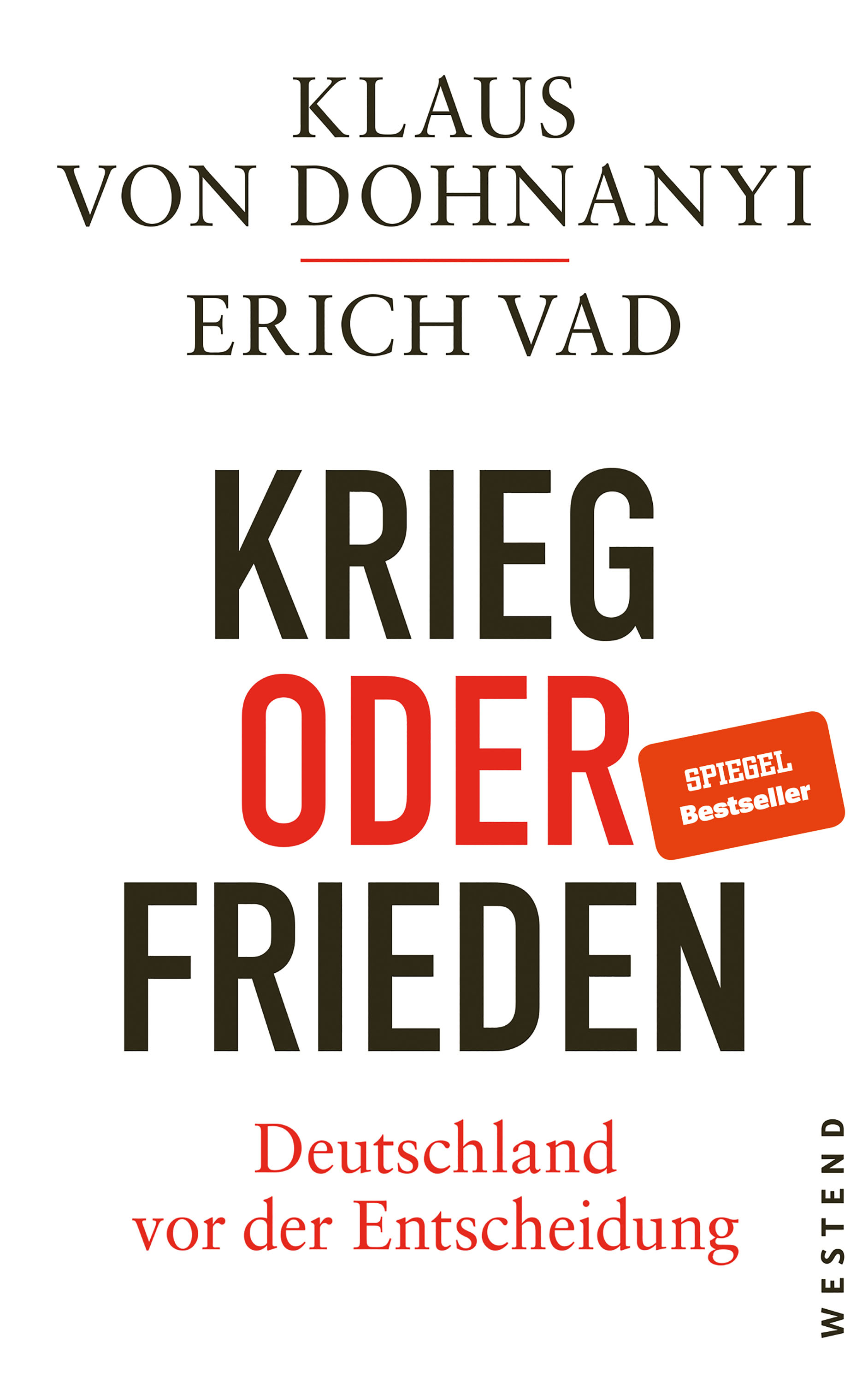
The book was published by Frankfurter Westend Verlag in August. 144 pages, ISBN 9783987913365

